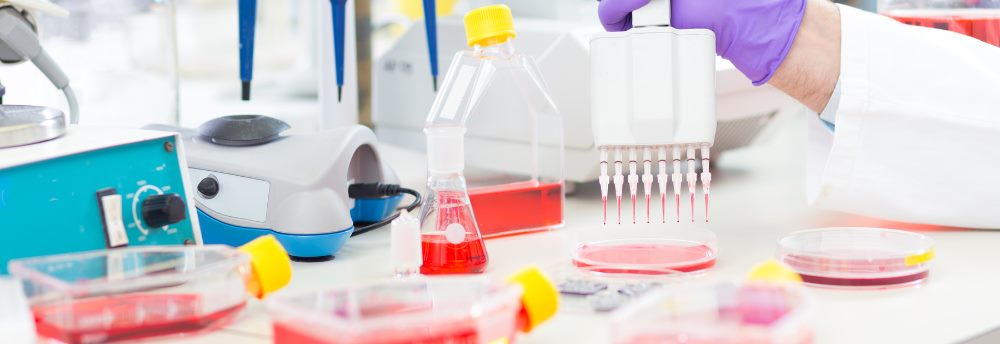What Middle Eastern laboratories look for when procuring lab equipment

The Middle East is rapidly emerging as a global hub for scientific research, healthcare, and industrial innovation. With increasing investments in oil & gas, pharmaceuticals, healthcare, and environmental sciences, laboratories across the region have specific demands when procuring equipment and technologies.
This article explores the key factors that laboratories in the Middle East prioritize when selecting instruments, chemicals, and lab infrastructure.
1. High-Quality, Durable Equipment
Middle Eastern laboratories—especially those in Saudi Arabia, UAE, Qatar, and Kuwait—require robust, high-precision equipment capable of withstanding harsh environmental conditions (e.g., high temperatures, dust, humidity).
Key Considerations:
- Reliability & Longevity – Equipment must perform consistently with minimal downtime.
- Compliance with International Standards (ISO, CE, FDA, etc.).
- Corrosion-Resistant Materials – Important for coastal regions like the UAE and Bahrain.
Most Sought-After Equipment:
- Spectrometers (ICP-MS, GC-MS, HPLC)
- PCR Machines & Next-Gen Sequencers (for genomics and diagnostics)
- Environmental Testing Devices (for air/water quality monitoring)
2. Advanced Digital & AI-Integrated Solutions
With the rise of smart labs, Middle Eastern facilities are increasingly adopting AI-driven, IoT-connected, and automated lab systems.
Key Trends:
- Laboratory Information Management Systems (LIMS) – For data tracking and compliance.
- Predictive Maintenance Sensors – To prevent equipment failures.
- AI-Powered Analytical Tools – For faster, more accurate results (e.g., AI-based microscopy).
Most In-Demand Digital Lab Solutions:
- Cloud-Based Lab Management Software
- Automated Liquid Handling Systems
- Machine Learning for Drug Discovery & Material Science
3. Compliance with Local & International Regulations
Middle Eastern labs must adhere to strict local regulations (e.g., SFDA in Saudi Arabia, ESMA in UAE, MOHAP in Dubai) as well as global standards (ISO 17025, GLP, GMP).
Key Regulatory Needs:
- Halal Certification – Important for food, pharmaceutical, and cosmetic testing labs.
- Environmental & Safety Compliance – Especially for petrochemical and industrial labs.
- Data Security & GDPR-Like Laws – UAE and Saudi Arabia have strict data protection laws.
4. After-Sales Support & Service Networks
Due to the geographical challenges in the Middle East, labs prioritize suppliers with:
- Local service centers (to reduce downtime)
- Quick spare parts availability
- Training programs for lab technicians
Most Valued Support Services:
- On-site calibration & maintenance
- Remote diagnostics & troubleshooting
- Warranty & extended service contracts
5. Sustainable & Energy-Efficient Lab Solutions
With Saudi Vision 2030, UAE Net Zero 2050, and Qatar National Vision 2030, sustainability is a major procurement factor.
Green Lab Trends:
- Energy-efficient freezers & incubators
- Water-saving autoclaves & analyzers
- Solar-powered lab equipment (piloted in some UAE facilities)
6. Cost-Effectiveness & Local Partnerships
While quality is paramount, budget constraints in some sectors (e.g., academic labs) drive demand for:
- Leasing & financing options
- Local manufacturing partnerships (e.g., Aramco’s in-Kingdom Total Value Add program)
- Bulk procurement discounts
Conclusion: What Suppliers Should Know
Middle Eastern laboratories are looking for:
✅ High-quality, durable equipment
✅ Smart, AI-driven lab solutions
✅ Strong regulatory compliance
✅ Reliable after-sales support
✅ Sustainable & energy-efficient options
✅ Cost-effective procurement models
Suppliers who align with these needs will find a rapidly growing market in the Middle East’s expanding laboratory sector.
Tender sites:
United Arab Emirates (UAE)
Federal & Dubai Tenders
- Dubai Procurement Portal (Dubai Tenders) – Official portal for Dubai government tenders.
- Abu Dhabi Government Tenders (ADTenders) – Abu Dhabi’s official procurement portal.
- Federal eProcurement Portal (UAEPASS Login) – For UAE federal government tenders.
Other UAE Platforms
- Dubai Municipality Tenders
- Etimad (UAE Federal Tenders)
- GulfTender (Paid service for UAE & GCC tenders)
Saudi Arabia
Government Tenders
- Saudi Government Tenders Portal (Etimad) – Official platform for KSA government tenders.
- National Unified Procurement Platform (NUPCO) – For healthcare sector tenders.
Private & Sector-Specific Tenders
- Saudi Aramco Tenders (Requires vendor registration)
- SEC (Saudi Electricity Company) Tenders
- GulfTender (Paid service)
Oman
Government Tenders
- Oman Tender Board – Official portal for Omani government tenders.
- eOman Procurement Portal – For electronic bidding.
Sector-Specific Tenders
- Oman Power & Water Procurement (OPWP) – For energy and water projects.
- Oman LNG Tenders
- Petroleum Development Oman (PDO) Tenders
GCC-Wide Tender Portals (Paid & Free)
- GulfTender (Subscription-based)
- TenderJO (Free & paid tenders for GCC)
- Zawya Tenders (Middle East business news & tenders)
For private sector tenders, checking corporate websites of major companies (like ADNOC, SABIC, PDO, etc.) is also recommended.
GET INVOLVED

